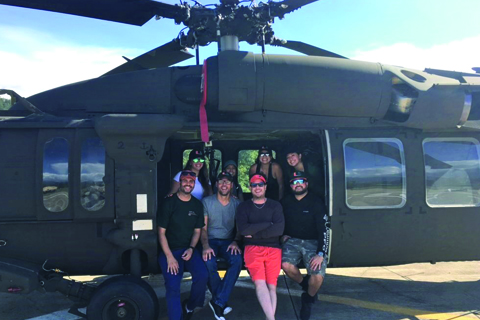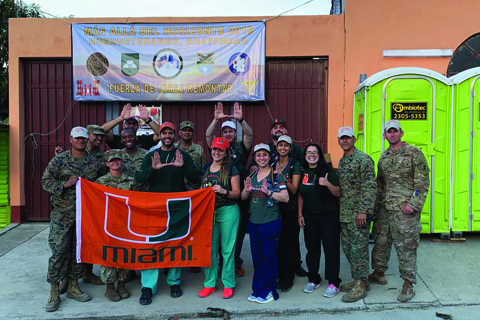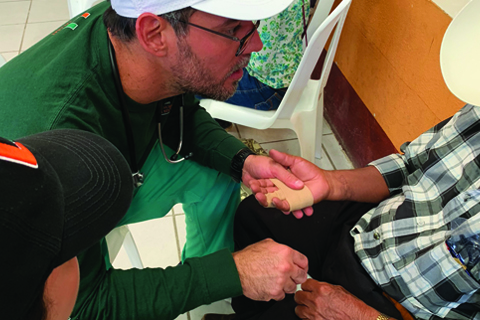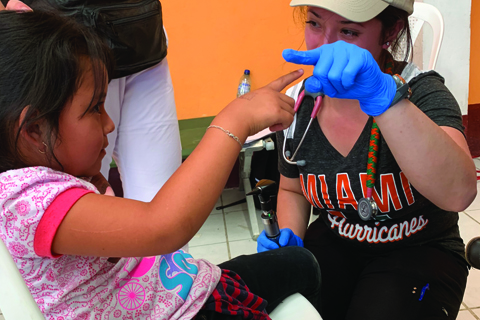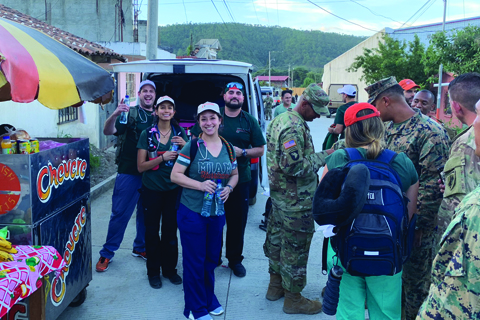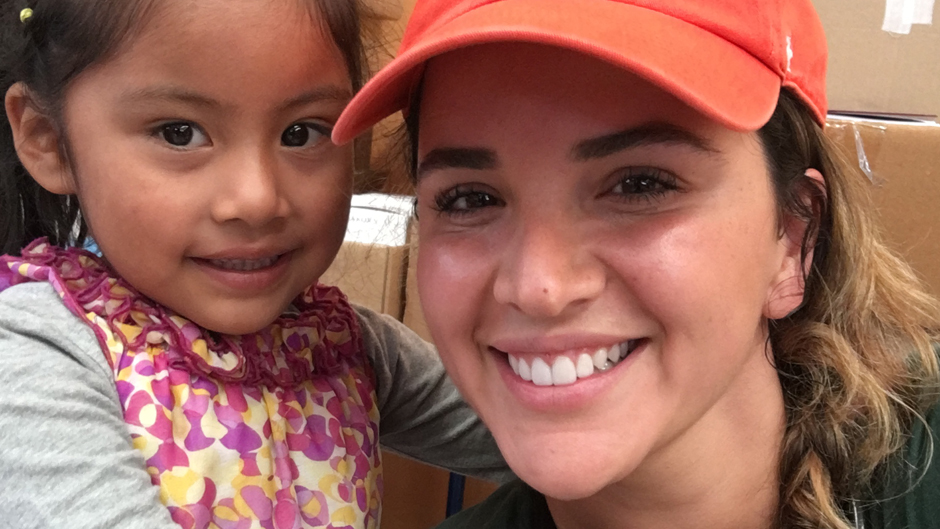Residents came from various villages in Huehuetenango, Guatemala, lining up by the hundreds for an opportunity many in the United States take for granted—a physical exam from a health professional.
The opportunity came in June with the Army’s Beyond the Horizon 2019 campaign. Faculty, staff, and half a dozen nurse practitioner students from the University of Miami School of Nursing and Health Studies (SONHS) were invited to deploy with Beyond the Horizon, an annual project combining medical, dental, veterinary, and engineering missions in Central and South America.
Assistant Professor of Clinical Juan M. Gonzalez, DNP, APRN, director of the Family Nurse Practitioner Program at SONHS, and nurse specialist Amauri Quintana, APRN, led the SONHS contingent. They spent their first night at a military base in Guatemala City, quickly learning to assemble the army cots they’d sleep on and prep the MREs (meals ready to eat) they’d consume during their four-day mission.
“The food is made to give you energy, about 1200 calories, and slow your gastrointestinal tract,” explained Dr. Gonzalez. “The idea is to make sure soldiers are not stopping frequently for bathroom breaks.” (The MRE pouch also includes a chewing gum to help rev up the GI system again.)
The SONHS crew took part in the MEDRETE, or medical readiness training exercise, from June 24 to 27 at the Tojocaz Community Center, in the municipality of Huehuetenango. The Army-sponsored exercise included assistance from groups like SONHS, the Guatemalan military and government, volunteer interpreters, and Team Rubicon, a nonprofit disaster response organization.
More than half of Guatemala’s 15 million inhabitants live in poverty, the World Bank reports, and have limited access to health care, especially in rural areas. According to the Army, the MEDRETE was able to service 821 to 1,080 adult and pediatric patients per day, with 3,734 individuals receiving services and over 4,139 total services provided. Services included general medicine, pharmacy, dental extractions, and vision screenings for 33% more patients than the originally projected 700 patients per day. A donation of 2,500 snack-packs and milk boxes, and over 1,000 units of water was also distributed.
“Working with the U.S. and Guatemala armies to provide resources and care to people in remote, rural areas was a great experience,” said Dr. Gonzalez. “It provided a completely new appreciation for our soldiers and how much they sacrifice. It also gave our students a great opportunity to learn about multi-center humanitarian civic efforts in a new clinical setting.”
Providing culturally competent care, with a focus on disparities, vulnerable populations, and global health are hallmarks of education at SONHS.
“I am very proud of our students for their global health outreach in Guatemala,” said Johis Ortega, Ph.D., associate dean for Hemispheric and Global Initiatives at SONHS. “The experience not only provides our students with clinical judgment in an atmosphere outside of the classroom; it also allows us to contribute to the efforts of the U.S. Southern Command in Latin America.”
Though rising political tensions and violence in Haiti put the school’s biannual mobile clinic trips there on hold last year, Dr. Ortega, associate professor of clinical, has added two new hemispheric clinical outreach initiatives—this army partnership and a collaboration with the University of the West Indies to run mobile clinics in Kingston, Jamaica’s underserved rural outskirts. Both clinical efforts took place for the first time this June.
